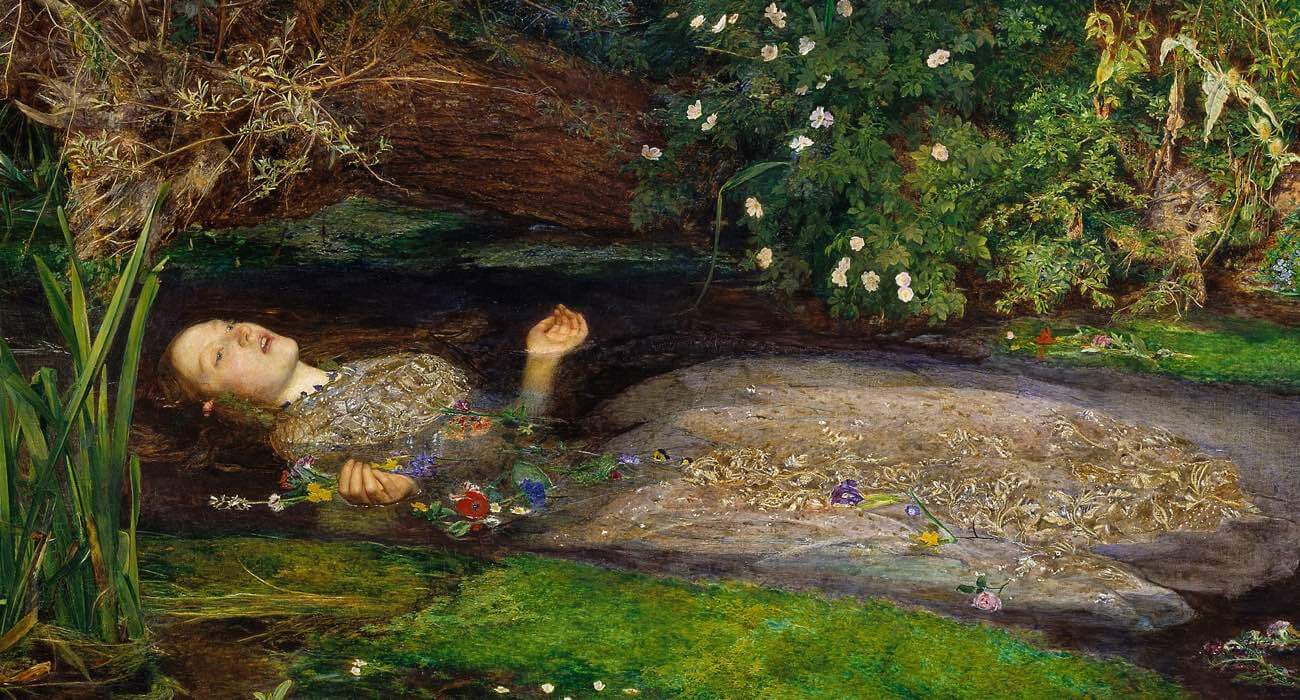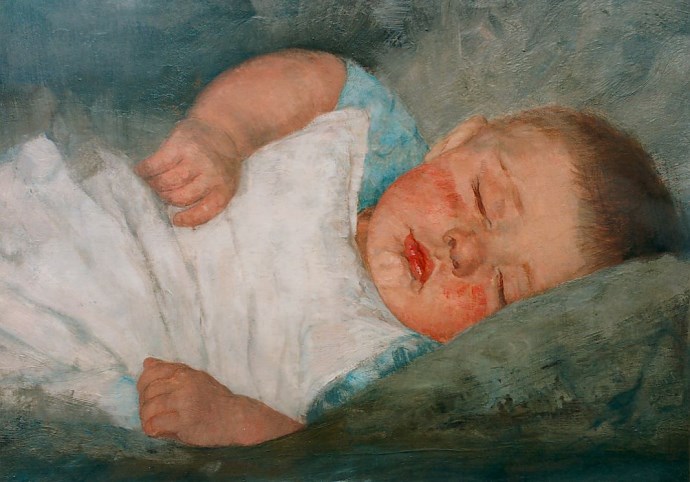I had a disconcerting realization last night as I was singing to my daughter before bed.
We were singing one of her favorites, Oh My Darlin’, Clementine, which, if you’re a little rusty on your 19th century American folk ballads, centers around this uplifting sentiment:
You were gone and lost forever
Awful sorry, Clementine.
As I shut the door to her room, I heard her softly singing the song to herself:
You were gone and lost forever
Awful sorry, ‘lementine (those hard Cs are still tough)
I’ve been singing this song to my daughter before bed for the entire three years of her life. And it only struck me now—hearing it from her—how utterly sad those lyrics are.
As I chewed on this over the next few days, another thought came to me: The songs I sing to my daughters before bed are just as much a kind of bedtime story as the books we read before bed.
But unlike most of the books we read before bed, the songs we seem to sing are strikingly sad. The other two songs I regularly sing before bed, for example, are similarly sad stories: Row Row Row Your Boat and You Are My Sunshine.
So why did I choose these songs to sing to my daughters before bed? And should I keep singing them given their content?
Before we take a stab at any of those, let’s run through these three songs and get a closer look at just how sad the they really are.
Clementine’s Tragedy
When I say that I sing Oh My Darlin’, Clementine to my daughters before bed, what I really mean is, I sing the chorus and the first verse, because that’s all I know:
Oh my darling, oh my darling
Oh my darling, Clementine
You are lost and gone forever
Dreadful sorry, Clementine
In a cavern, in a canyon
Excavating for a mine
Dwelt a miner, forty-niner
And his daughter, Clementine
But after hearing my daughter singing about being “lost and gone forever,” I decided to look up the full lyrics to take a closer look at this musical bedtime story.
And then things got sadder. Much, much sadder.
Here’s the second verse, and while there’s nothing especially sad explicitly, it feels a little ominous given the foreshadowing of the chorus:
Light she was and like a fairy
And her shoes were number nine
Herring boxes, without topses
Sandals were for Clementine
The action really heats up in verse three:
Drove she ducklings to the water
Ev’ry morning just at nine
Hit her foot against a splinter
Fell into the foaming brine
Bet you didn’t know ducklings played a role in Clementine’s story, eh?
By verse four, our darling Clementine’s surprisingly graphic tragedy hits full stride:
Ruby lips above the water
Blowing bubbles, soft and fine
But, alas, I was no swimmer
So I lost my Clementine
But it’s the fifth and final verse that really takes things to another level with a nasty twist:
How I missed her! How I missed her
How I missed my ClementineBut I kissed her little sister
I forgot my Clementine
? I know, right?
After the shock of all this wore off, I started to wonder: If I only gave my daughter a tease of the full story, would she fill in the gaps herself? Would she come up with her own story for what happens to darlin’ Clementine?
The Existential Terror of Boating
I really have no idea why I chose the songs I did to sing to my daughters before bed, but another early one was Row Row Row Your Boat.
We’ve all heard this, of course:
Row, row, row your boat,
Gently down the stream.
Merrily, merrily, merrily, merrily,
Life is but a dream.
I’m not really sure how to take that idea that life is “but a dream”? Is that a good thing? Seems a little Matrixy to be completely benevolent.
But the song appears to insist that it is with its four preceding “merrily”s.
- Perplexed, I did a quick Google search of “Row row row your boat interpretation,” which brought up some interesting commentary and theories:
- One particularly outraged internet person claims that “Row Row Row Your Boat” is a Totally Twisted F—ed Up Song, because it encourages nihilism.
- While this guy’s video suggests a more hopeful, zen-like meaning of Row Row Row Your Boat.
- And then there’s this “metaphysical” interpretation from The Global Center for Spiritual Practices: “Consciously align your human nature, willingly and readily, with your Divine Nature, trusting that each of your many dimensions of being is an evolving state of consciousness on your journey toward Self- Realization.”
As is usual after Google searches like this, I don’t think I’m any more sure about what it all means than when I started.
But more importantly, I wonder, What do my daughters make of this? How might they interpret the idea that “life is but a dream”? What does a three-year-old make of that, if they have the ability to make anything of it? And even if she can’t right now, have I planted a seed that may come to mean something later?
The Melancholy of Sunshine
Originally written and recorded by Jimmie David and Charles Mitchell, You Are My Sunshine has since been recorded by everyone from Tina Turner and Johnny Cash to Brian Wilson and Carly Simon.
Like Clementine, the melancholic first verse and chorus are familiar to most of us (and the only ones I ever sing):
The other night dear, as I lay sleeping
I dreamed I held you in my arms
But when I awoke, dear, I was mistaken
So I bowed my head and I cried
You are my sunshine, my only sunshine
You make me happy when skies are gray
You’ll never know dear, how much I love you
Please don’t take my sunshine away
While the first verse begins with tears and sadness, we get some possible infidelity and regret in verse two:
I’ll always love you and make you happy
If you will only say the same
But if you leave me and love another
You’ll regret it all some day
Things get heavy in verse three when lies, genuine infidelity, and disillusionment come in:
You told me once, dear, you really loved me
And no one else could come between
But now you’ve left me and love another;
You have shattered all of my dreams
Verse five rounds things out with heartache, blame, and perhaps a little hope:
In all my dreams, dear, you seem to leave me
When I awake my poor heart pains
So when you come back and make me happy
I’ll forgive you dear, I’ll take all the blame
Pretty heavy, adult stuff for a kid right before bed, no?
Why Am I Singing Such Sad Songs to My Girls Before Bed?
I’m not sure I have any really answers for this question, but a few observations come to mind.
- Music and Lyrics. I think most of us would agree that it’s the music of a song that tends to impact us more directly than the lyrics or story. So maybe I chose these songs simply because I liked the tunes? So much so, perhaps, that I ignored the intensity of the content. Personally, I tend to like songs that are musically upbeat and lyrically sad, so my lullaby selection seems to fit with my historical selection of music generally. Plus, even though the content of the songs is sad, the rhythm of all three of these songs feels comforting to me, which seems appropriate for bedtime.
- Low Technical Difficulty. I have no actual qualification to speak on this, but it seems to me that of all the different forms of song out there, ballads are probably the easiest to sing for someone who can’t sing. Maybe I chose them simply because I could sing them.
- High Appeal. It’s a bit baffling, but my daughters seem to really like these songs. My oldest, who’s three, frequently goes out of her way to request them. And if I suggest a new song, she often insists that we go back to “oh my darlin,” “row row,” or “sunshine.” Of course, maybe she likes them because they’re what she’s always heard, but it’s possible that there’s something about them that she enjoys intrinsically. Maybe it’s the musicality or rhythm or maybe she’s just picking up on how much I seem to enjoy singing them and likes that I like them.
Whatever the origin, these are the songs we’ve settled on. Which brings me to my last question: Should I keep singing them? Or is there something developmentally inappropriate or harmful about introducing such heavy emotions to such young minds right before bed?
In Why Kids Need Fairy Tales (The Scary kind), I looked at psychologist Bruno Bettelheim’s argument that children actually need literature that exposes them to difficult emotions, especially fear. That by helping children to confront and validate their own intense emotional struggles, these books actually aid them in their emotional development.
If traditional fairy tales help children to validate and come to terms with their own deepest fears, why can’t sad folk songs help our children with their own growing understanding of loss and sadness?
Our kids will experience loss. And when they do, they’ll feel sad.
Maybe losing Clementine each night helps my daughters learn that loss is normal part of life—something to be felt and considered, and maybe even celebrated in song.




Comments
[…] all bedtime stories are funny, of course. Some are tragically sad. Which, for the reasons I laid out here, isn’t a bad thing by any […]